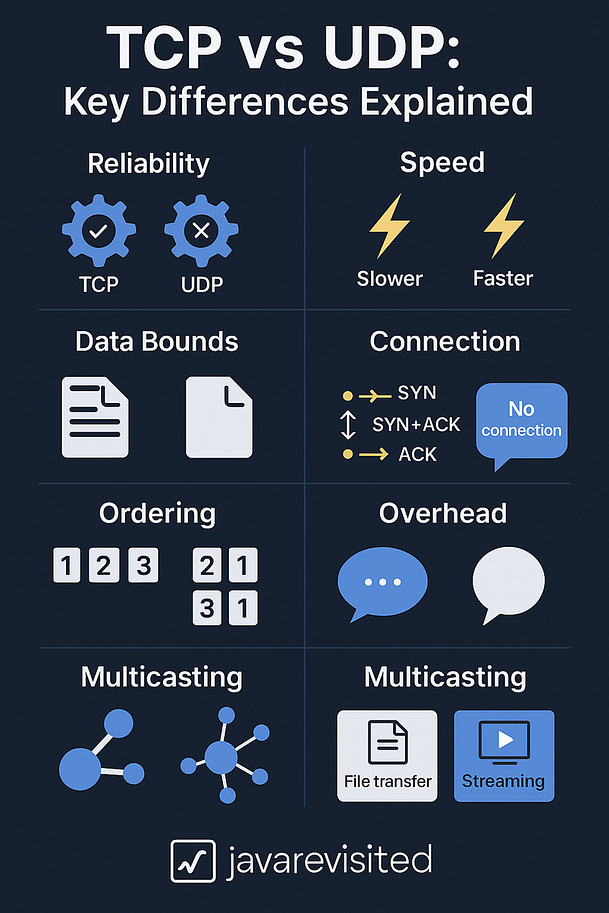Stop Confusing TCP and UDP! Here’s the Ultimate Cheat Sheet
The story of TCP vs UDP for Software Engineering interview
If you’re preparing for a Java software engineering interview or any System Design Interview on FAANG, there’s one networking topic you simply can’t skip: the difference between TCP and UDP.
Despite being core to the internet and computer networks, many developers can’t clearly articulate how TCP and UDP differ, especially in practical terms like reliability, speed, data handling, and use cases.
This is not just theoretical knowledge. It frequently shows up in interviews, and if you’re aiming for backend roles or working with distributed systems, your interviewer will expect more than just “TCP is reliable and UDP is fast.”
Let’s break it down with clarity, context, and a developer’s mindset.
Why This Matters for Software Developers?
As a Software developer, you might use TCP for reliable client-server communication or UDP for sending real-time updates with minimal latency.
Whether you’re building chat apps, stock trading systems, or multiplayer games, understanding these two transport layer protocols can help you choose the right tool for the job — and ace those interview questions.
8 Key Differences Between TCP and UDP
Here are the most important differences between TCP and UDP from a Software development and interview perspective:
Keep reading with a 7-day free trial
Subscribe to React Java to keep reading this post and get 7 days of free access to the full post archives.


